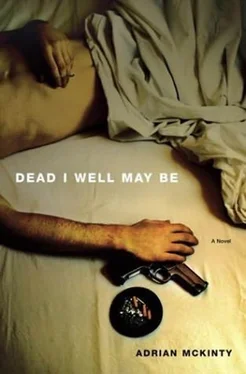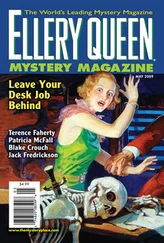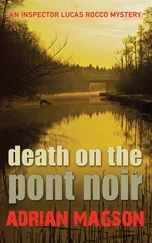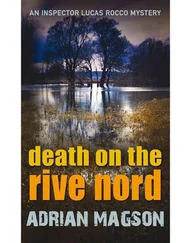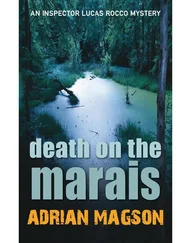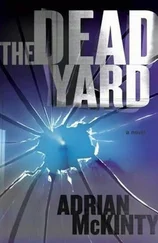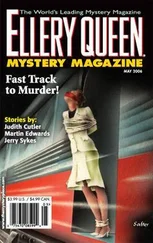
Adrian McKinty
Dead I Well May Be
The first book in the Michael Forsythe series, 2003
And if you come, when all the flowers are dying
And I am dead, as dead I well may be…
– F. E. Weatherly, “Danny Boy,” 1910,
adapted from “The Londonderry Air” (trad.)
PROLOGUE: BELFAST CONFETTI
No one was dead. For once they’d given a good, long warning and there’d been no fatalities. We arrived after it was all over, and when the forensics officers were done, the policemen raised the yellow tape to let us through. We carried the glass from vans, a sheet at a time, to foremen and builders’ mates who forklifted it up to carpenters on cranes and cherry pickers.
We climbed the stairs, put on our gloves, unloaded the pallets. We caught our breaths and took in the view.
The gray certainty of a December sky. Cold fathoms of paralyzed lough. Sea rain and peat smoke drifting over the shipyards and the town.
We walked back to the huge spindle-sided vehicles and carried more sheets, all of them precut and lying there in sailcloth and plastic, well wrapped, and seemingly long ready for an event such as this.
Sore fingers, aching backs.
We worked hard and drank water and smoked and a man brought beer and chicken-salad sandwiches from Marks and Spencer.
Someone had bombed the Europa Hotel again, no casualties but every window within a half a mile was out. It was the stuff of glaziers’ dreams and the cops were on overtime and the army on foot patrol and the journalists chasing copy for the morning papers. TV crews, radio reporters, still photographers, the gloaming dark, the broken glass like diamond on the leadened streets.
We labored, talked.
A fog had oozed down from Cave Hill and Black Mountain, bringing cold and damp to the tangle of runaway alleys off Sandy Row. We were underdressed and a foreman gave us knit caps and hard hats and that helped a little.
All of us had met only a few hours ago outside the bookie’s when a man said he was looking for fit guys to move pallets of glass into and out of vans. The pay was fifty pounds the day and a bonus for a clean job.
And everyone, including those on disability, had of course said yes. Unemployment was at 35 percent and the man could have offered half the wages and still we all would have come. In any case the market rate was unimportant since the Europa’s insurers were footing the bill and the insurers were indemnified by the British government and ultimately, if you traced it back, the burden was falling on the taxpayers of Surrey and Suffolk and Kent, and really, if you lived in one of those places your worries were small and undisordered and you could well afford it.
The fog encouraged levity and more than once we put our hands to our throats and pretended we’d been dragged off by Jack the Ripper.
The real tragedy, of course, wasn’t the modern Europa Hotel but the Crown Bar opposite, whose stained glass windows and gaslight had been fixtures since the 1840s. The bar was a gem owned and operated by the National Trust-its crystal sea patterns and ship anchors and Celtic turns utterly destroyed and in pieces on the pavement.
The Europa, “the most bombed hotel in Europe,” had been redesigned with crumple zones to absorb the impact of explosions. And now it had done well on its first field test: the whole building intact, except for the windows on the lower floors where the hijacked car had erupted with most effect.
But the Belfast glaziers couldn’t complain about that, for with Christmas coming the payday from surrounding buildings would be enough to keep their own in Islay whisky and Belgian chocolate and Italian shoes. And we didn’t care. It was a job, there was money at the end, and it was heavy lifting, which is a tricky thing if you don’t look out.
We laid down a long sheet for a lobby door and an AP man snapped our pic and said it was a good one and walked back with us behind the police lines. We chatted and he said he was from Jacksonville, Florida, and couldn’t believe how dark it was so soon, and I explained, having taken geography, that Belfast was on the same latitude as Moscow and the panhandle of Alaska and the nights were long in summer and in winter you paid the price.
The AP man jogged down to the offices of the Belfast Telegraph . The army boys got in their Land Rovers and drove to base. The coppers yawned and changed shifts, and the crowd, such as it was, was drifting away now and back to other occupations.
We laughed when our photograph appeared on the front page of the evening Telegraph . There we were rebuilding the proud city, the indomitable faces of Belfast. “Their Spirit Will Not Be Broken,” a headline proclaimed.
Aye, just our bloody backs, a man called Spider said.
But we walked with swagger as the vans unloaded the last of the big plates and the side windows and the boards for the pub.
We worked, the rain eased, the wind changed, and papers, fragments, bits of the hijacked car, and pulverized brick and glass coated us as we moved. The dismal stuff of explosion so familiar now in many cities. A confusion of words and particles that the poet Ciaran Carson calls Belfast Confetti.
Putting in the windows would take weeks, but that was the purview of professionals. At the end of the day our work was done, the glass unloaded, and we were paid off with a wee bonus for no breakages and no thefts. A few of us saved the dough for Christmas presents but most went to the Mermaid Tavern for a pint or two.
We drank and bought rounds of the black stuff and ate pickled eggs and Irish stew.
I left to do some shopping before the late-night closing. I got myself a couple of books and the new Nirvana record. I bought Nan a winter coat. She’s been a chocolate addict since wartime rationing, so I couldn’t resist a giant bar of Toblerone. On the bus back I met Tommy Little, whom I’d known in the army, Tommy staying in and making sergeant and me getting kicked out and ending up in the brig, in, of all places, Saint Helena-a nasty, windswept shithole whose other famous military prisoner, Napoleon, died mysteriously. So you could say I got off lightly. We laughed and Tommy said that I was a wild man and I said he was on his way to general.
Another bus, the road, the long walk up the hill. The ever-present conspiracy of fog and rain.
Nan was watching Coronation Street . No problem to smuggle in a hidden coat. We had a late dinner of Ulster fry: potato bread and bacon, soda bread and egg.
She only ever watched the soaps, so she hadn’t even heard about the morning bombing. I didn’t enlighten her. She would have been upset. I produced the Toblerone and Nan practically laughed with delight.
Oh, you shouldn’t have, she said.
I picked up a wee bit of work today, I explained, and she made the tea and we ate the chocolate and I helped her get the last clues in her crossword book.
The darkness filled, the fires went out. I showered and retired to bed. The late-night noises of the house and the street began around me. The pipes in the attic water tank. The dogs communing across the town.
Mrs. Clawson yelling with only half a heart: Were ye on the dander again, you drunken scut?
Below me the creaking of boards and beams as the chimney took away the last heat from the fire and the house chilled and the floor timbers shrank and cooled.
And I was gone, off in a deep, hard-work sleep…
Late next morning a man from the dole office was waiting for me. A big man with glasses, tweed jacket, blue shirt, red tie, and a clipboard, but who otherwise, in different circumstances entirely, could possibly have been an ok sort of bloke. He should really have been a skinny wee fella with greasy hair, but this was a tough part of town and he was here on business. He was sipping Nan’s tea and eating the last piece of Toblerone. I sat down and the man had news.
Читать дальше
